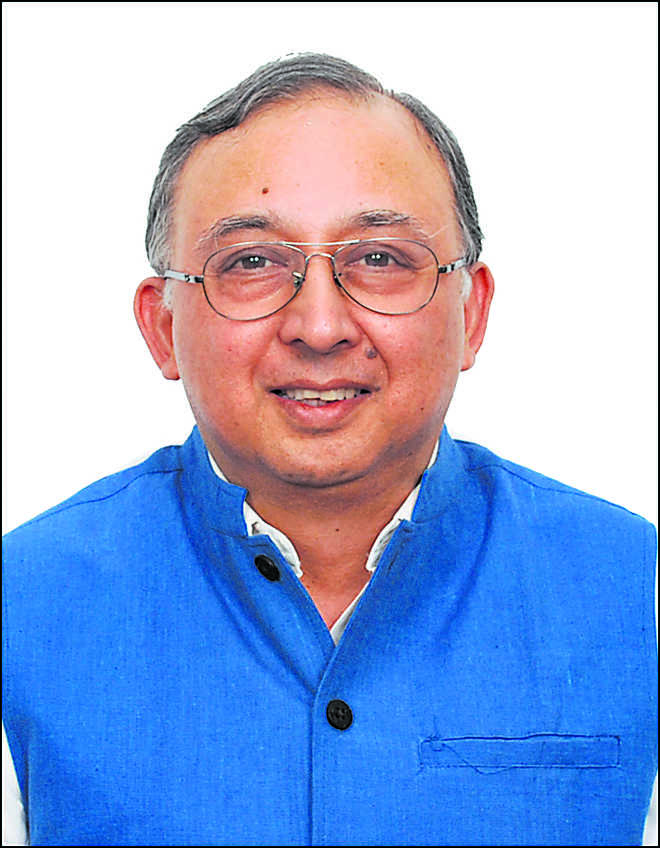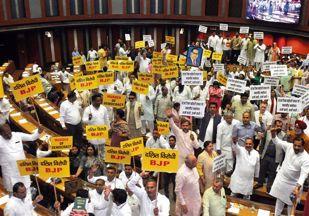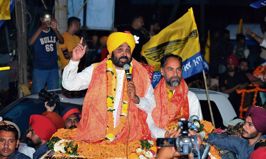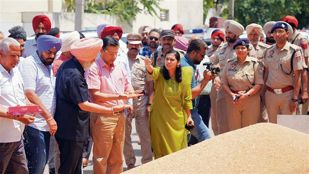
Tilak Devasher, Member, National Security Advisory Board.
IN a Q&A with The Tribune, Tilak Devasher, a member of the National Security Advisory Board, talks about his new book, ‘Pakistan: The Balochistan Conundrum’, and the state of affairs in Balochistan.
(Read book review here)
(Read book review here)
Q: You have written three books on Pakistan. How did you acquire information on Pakistan?
During my college and university days I studied the Indian freedom struggle and Partition. During my service career, I had the opportunity to study Pakistan professionally and so gained a first-hand interest and knowledge about the country. After superannuation I have continued my interest and study of the country. All this helped me to acquire information on Pakistan and made my task of writing easier.
Q: Is the situation in Balochistan comparable to that in Kashmir?
The two situations are not comparable at all. In the case of Kashmir, the Maharaja signed the Instrument of Accession voluntarily and acceded to India. In the case of the princely state of Kalat (as most of Balochistan was then called), the Khan was forcibly taken to Karachi, and forced to sign the Instrument of Accession. Not only was the Instrument forcibly signed but the Khan had also delegated the power of accession to the two Houses of the parliament that had been set up after Kalat declared independence on August 12, 1947. Only the two Houses could decide this issue and both had rejected accession to Pakistan. That is why even today, many Baloch consider their accession as illegal. If at all there is a commonality, it is the fact that Pakistan broke the Standstill Agreements it had signed with both the Maharaja of Kashmir and the Khan of Kalat and sent in so-called ‘raiders’ in Kashmir in October 1947 and the Pakistan army in Kalat in March 1948.
Moreover, the Baloch broke out in open rebellion in 1948 itself, highlighting that they did not accept accession. They have broken out in revolt several times thereafter. In the case of Kashmir the accession was peaceful and accepted by the Kashmiris.
To liken the situation between Kashmir and Balochistan and to give them equivalence is to be ignorant of history.
Q: Why have the Baloch insurgencies been unsuccessful?
There are several reasons for this, including the fact that the Baloch society for a long time continued to be tribal where the primary loyalty was to the tribe rather than to a larger Baloch cause. The failure of different tribes to come together in a unified nationalist movement in the cause of Baloch nationalism was been due to this strong element of tribal loyalties. This is, however, changing now with the growth of communication, education, social media and so on. Now there is a pan-Baloch educated middle class that does not think in terms of loyalty to the tribal structure but loyalty to Balochistan. Other reasons are that the Pakistan army is far more powerful and has lethal weapons that the Baloch cannot match.
Q: Have the Baloch insurgencies against the Pakistan Army had foreign backers?
This is Pakistan’s line that the insurgency is foreign backed. During the earlier insurgencies, the Baloch rebels did seek sanctuary in Afghanistan but did not get the kind of assistance or backing to launch or sustain the insurgency. Given the porous nature of the border between the two countries, it was easy for the Baloch to slip across the border. However, none of the insurgencies have ever had any serious backing.
Q: What is the relationship of the Baloch with the Taliban, especially since the Taliban leadership is supposed to be in Quetta.
The presence of the Taliban ‘Quetta shura’ does complicate perceptions. However, a distinction needs to be made between them and the Baloch. The Taliban, who are Pashtuns, are located in the north of the province while the Baloch are in the south and central parts of the province. The Baloch are fighting for their rights and even survival that is quite distinct from the fight of the Taliban who are seeking to claw back into power in Afghanistan. The Taliban want to establish an Islamic caliphate in Afghanistan and are being backed Pakistan. The Baloch ethnic insurgency, focused in the Baloch areas, is, on the contrary, a secular fight against the Pakistan state.
The Baloch are perhaps the most secular people in Pakistan. In 1947, the only place where there were no communal riots was Balochistan. When the Pakistan army attacked Akbar Bugti’s house, most of the people killed were Hindus who had been sheltered by him. The entire Baloch belief system underplays the role of religion and this is universally recognised. This is why the Pakistan state has been trying, especially since Gen Pervez Musharraf’s time, to inject religious radicalism into the province.
(Read book review: Balochis: Forever sullen and proud)
Q: What is the road ahead for Balochistan?
Two points are relevant here. One, the nature of the Baloch society is evolving. With the gradual dismantling of the age-old ‘Sardari nizam’ (tribal structures), a new generation of leaders is taking roots and these young and dynamic leaders are at the forefront of the Baloch struggle now. The Baloch have also started defining their nationhood consciously and have assumed greater international visibility now than ever before. While there are many weaknesses within the movement, the spirit of independence and the will to fight, partly induced by the undemocratic and excessive measures by the Pakistani state, are important factors.
Second, unless resolved, the insurgency in Balochistan, even at current levels, will eat into the innards of Pakistan. Having sustained the insurgency for over a decade, it has developed a momentum of its own. Hence, military force alone will not break Baloch resistance. Pakistan would have to be prepared for the long haul unless there is a radical change in the manner in which the Army decides to deal with the Baloch. This, at present, seems unlikely. Thus, continuing to seek a military solution to a political problem may make sense tactically in softening the opposition, but it can never be a long-term solution.



























